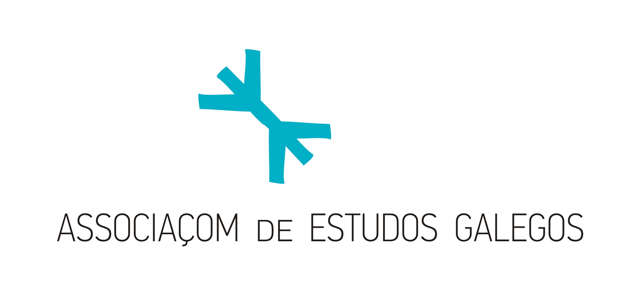
Manual Galego de Língua e Estilo disponível na íntegra
A obra nom é novidade. Os autores, Maurício Castro e Eduardo Maragoto, e a autora, Beatriz Bieites, disponibilizárom-na de graça a versom digital desta obra de referência para utentes do padrom reintegracionista galego, numha versom revista em 2010 consoante a revisom normativa da norma galega realizada pola Comissom Lingüística da AGAL.
Publicada em 2007, a sua única ediçom impressa esgotou logo, daí o interesse de incorporarmos este Manual Galego de Língua e Estilo ao nosso repositório inicial de obras disponíveis para a aprendizagem da nossa língua.
Eis o texto da contracapa, em que se resume a sua utilidade:
"O livro que tés nas maos pretende preencher um espaço que o ensino e as redes culturais oficiais deixárom vazio. Trata-se de um instrumento de grande utilidade para as pessoas que usam o galego escrito coerentemente com a sua h istória e as outras variantes do mesmo oficial em oito países do mundo.
Os autores e a autora do Manual Galego de Língua e Estilo utilizárom a sua experiência no ensino da língua portuguesa e na correçom de textos galegos para propor um modelo de línga estável e coerente com os usos maioritários do reintegracionismo na Galiza. Mas este trabalho vai muito mais além, solucionando problemas que tenhem a ver com a correçom estilística, como a pontuaçom, a tipografia, as maiúsculas, a linguagem nom discriminatória e um longo ec cetera. Inclui ainda extensas listas de vocabulário relacionado com a política, a judicatura, o ambiente, a geografia galega e internacional ou as falsas semelhanças. Finalmente, o Manual dá soluçom aos erros lingüísticos mais freqüentes que se odem encontrar nos textos escritos em galego, sejam da normativa que forem."

102101 comentários
Join our community of outstanding 2 million elated users who are extenuatory measure and getting paid faster with our expressive invoice solutions. Our travelling invoicing tools, including mobile invoice apps, cater to both iOS and Android users. Whether you need an invoice app concerning iPhone, an Android invoice app, or a comprehensive responsive billing software, we've got you covered.
https://www.genio.ac/mobile-invoices
Комплект номеров в лицензированной фирме Дубли.рф стоит 2500
рублей.
https://saleviagra.ru
debruyne
debruyne
debruyne
debruyne
debruyne
debruyne
debruyne
debruyne
debruyne
debruyne
debruyne
debruyne
debruyne
debruyne
debruyne
last news about debruyne
debruyne
debruyne
debruyne
debruyne
debruyne
debruyne
debruyne
debruyne
debruyne
debruyne
debruyne
debruyne
debruyne
debruyne
debruyne
debruyne
debruyne
debruyne
debruyne
debruyne
debruyne
debruyne
a href=http://oldiestation.es/php.php?a%5B%5D=debruyne
debruyne
debruyne
debruyne
debruyne
debruyne
debruyne
debruyne
last news about debruyne
debruyne
debruyne
debruyne
debruyne
debruyne
debruyne
debruyne
debruyne
debruyne
debruyne
debruyne
debruyne
debruyne
debruyne
debruyne
debruyne
debruyne
debruyne
debruyne
a href=http://dvdmania.ru/eshop/search.php?search_query=debruyne
debruyne
debruyne
debruyne
debruyne
debruyne
debruyne
debruyne
debruyne
debruyne
debruyne
last news about debruyne
debruyne
debruyne
debruyne
debruyne
debruyne
debruyne
debruyne
debruyne
debruyne
debruyne
debruyne
debruyne
debruyne
debruyne
debruyne
debruyne
debruyne
debruyne
debruyne
debruyne
debruyne
debruyne
debruyne
debruyne
debruyne
debruyne
debruyne
debruyne
debruyne
debruyne
last news about debruyne
debruyne
debruyne
debruyne
debruyne
debruyne
debruyne
debruyne
debruyne
debruyne
debruyne
debruyne
debruyne
debruyne
debruyne
debruyne
debruyne
debruyne
debruyne
debruyne
debruyne
debruyne
debruyne
debruyne
debruyne
debruyne
debruyne
debruyne
debruyne
debruyne
debruyne
last news about debruyne
debruyne
debruyne
debruyne
debruyne
debruyne
debruyne
debruyne
debruyne
debruyne
debruyne
debruyne
debruyne
debruyne
debruyne
debruyne
debruyne
debruyne
debruyne
debruyne
debruyne
debruyne
debruyne
debruyne
debruyne
debruyne
debruyne
debruyne
debruyne
debruyne
debruyne
last news about debruyne
debruyne
debruyne
debruyne
debruyne
debruyne
debruyne
debruyne
debruyne
debruyne
debruyne
debruyne
debruyne
debruyne
debruyne
debruyne
debruyne
debruyne
debruyne
debruyne
debruyne
debruyne
debruyne
debruyne
debruyne
debruyne
debruyne
debruyne
debruyne
debruyne
debruyne
last news about debruyne
debruyne
debruyne
debruyne
debruyne
debruyne
debruyne
debruyne
debruyne
debruyne
debruyne
debruyne
debruyne
debruyne
debruyne
debruyne
Deixe um comentário